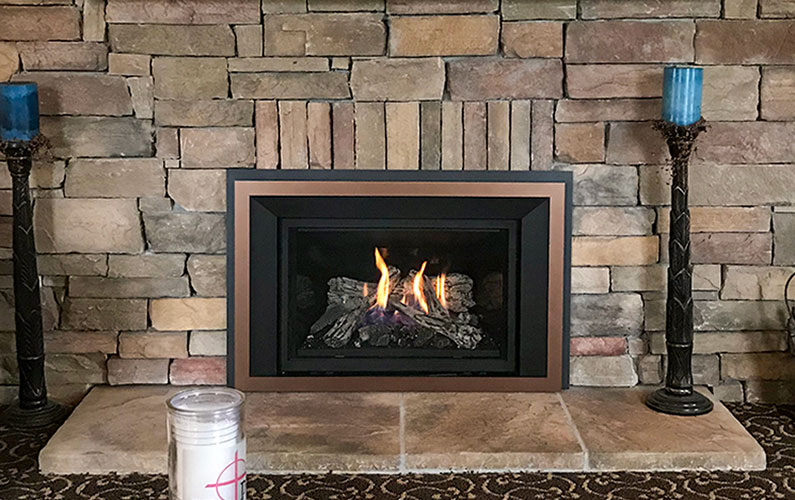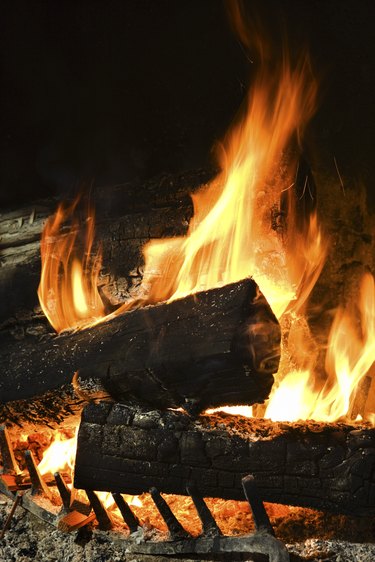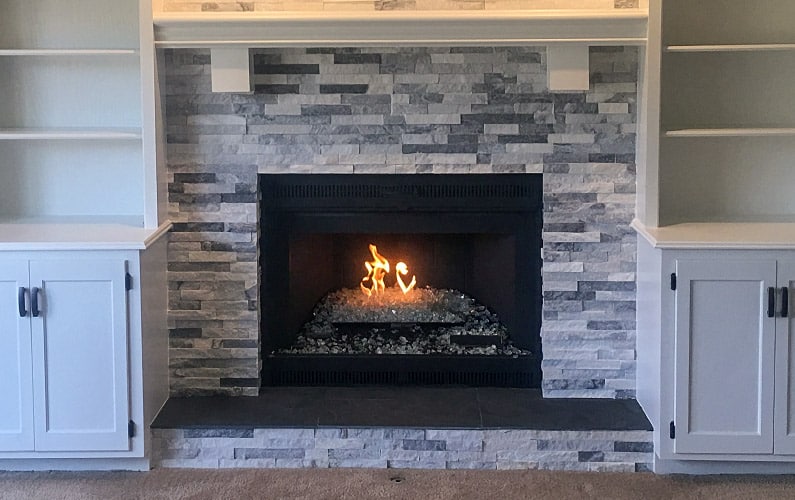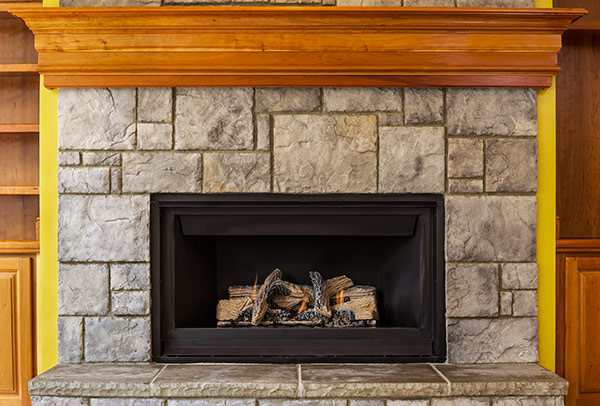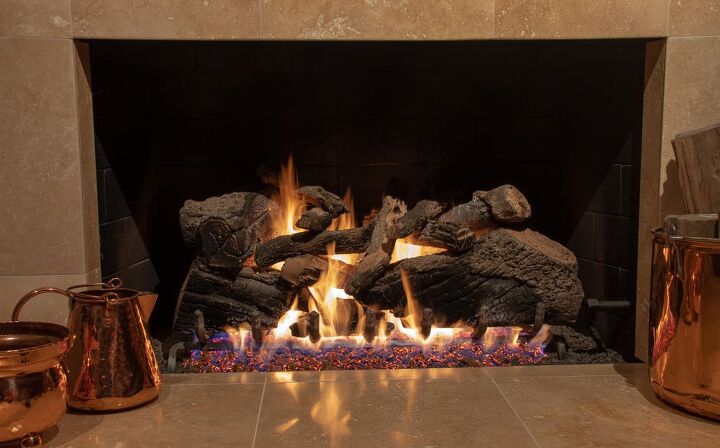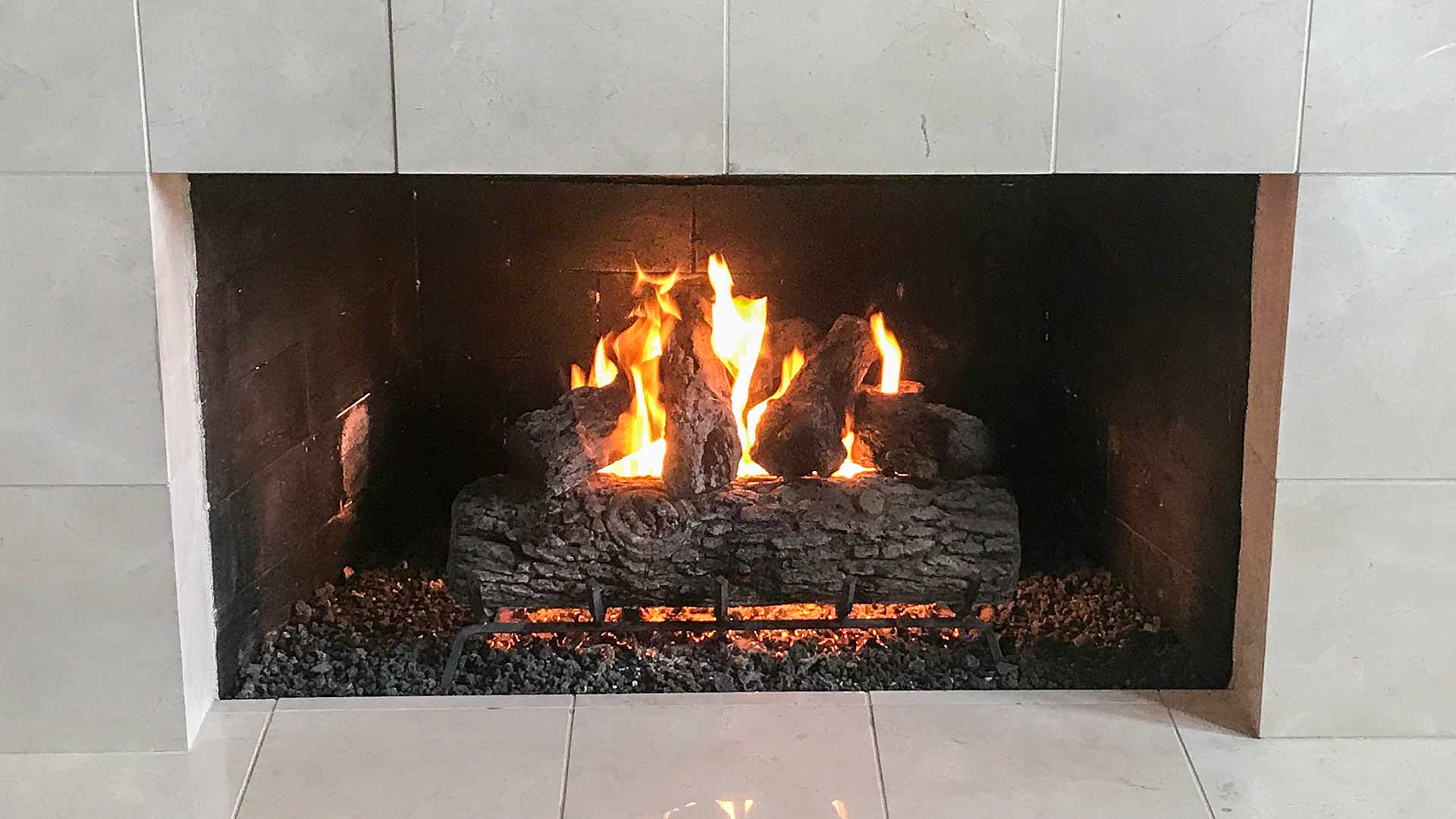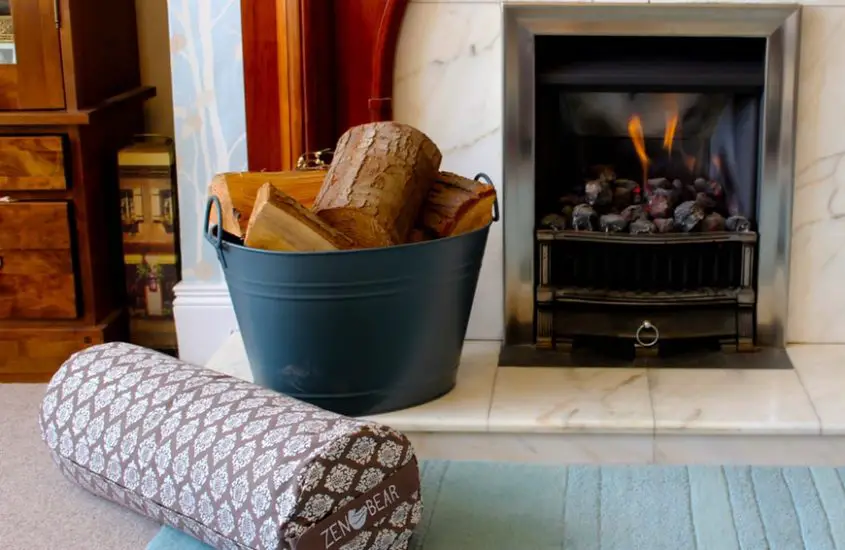A gas fireplace is a convenient and efficient way to add warmth and ambiance to your home. However, it can be concerning if you notice a strong or unpleasant odor when your gas fireplace is burning. Understanding the potential causes of gas fireplace odors is essential for addressing the issue and ensuring a pleasant and safe experience. I will explore why gas fireplaces may emit odors when burning, providing insights into possible solutions and maintenance tips.
Gas Fireplace Odor: Dust and Debris Accumulation
One of the primary reasons for a gas fireplace emitting an unpleasant smell when burning is the accumulation of dust and debris. Over time, dust, pet dander, and other particles can settle in the fireplace and on the gas logs or burner. When the fireplace is ignited, these accumulated particles can burn, resulting in a noticeable odor.
To address this issue, regular cleaning and maintenance are essential. Begin by turning off the gas supply and cooling the fireplace completely. Carefully remove the gas logs and clean them using a soft brush or cloth to remove any dust or debris. Use a vacuum with a brush attachment to clean the fireplace’s interior, ensuring all loose particles are removed. Regular cleaning and maintenance will help minimize the buildup of dust and debris, reducing the likelihood of unpleasant odors when the fireplace is in use.
Gas Fireplace Odor: Soot and Carbon Buildup
Another potential cause of gas fireplace odors is soot and carbon buildup on the gas logs or burner. This buildup can occur due to incomplete combustion, improper air-to-fuel mixture, or inadequate ventilation. The accumulated soot and carbon can produce a distinct smell when the fireplace is burning.
To address this issue, having your gas fireplace professionally inspected and cleaned annually is recommended. A professional technician can thoroughly clean the gas logs, burner, and ventilation system, ensuring proper combustion and ventilation. Regular maintenance will help prevent excessive soot and carbon buildup, reducing the likelihood of unpleasant odors and ensuring optimal performance and safety.
Gas Fireplace Odor: Natural Gas Leak
A natural gas leak is a serious concern and can result in a noticeable odor when your gas fireplace is burning. Natural gas is naturally odorless, but a distinct odorant called mercaptan is added to detect leaks. If you detect a strong odor of rotten eggs or sulfur, it is crucial to take immediate action.
In case of a suspected gas leak, prioritize your safety and evacuate the premises. Contact your gas provider or emergency services to report the potential leak. Do not attempt to operate the fireplace or any electrical devices, as sparks can ignite the gas. Professional technicians must assess and repair the gas leak to ensure your safety.
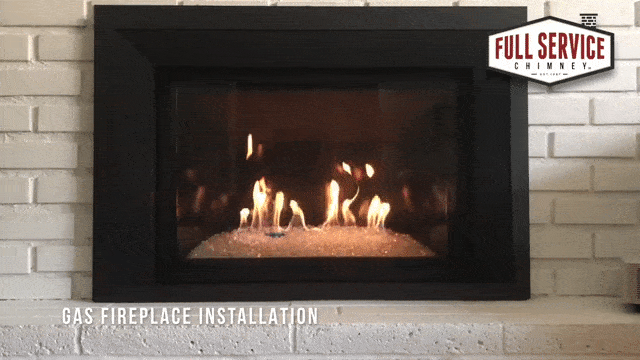
Gas Fireplace Odor: Ventilation Issues
Proper ventilation is vital for a gas fireplace to operate efficiently and safely. If your gas fireplace is not adequately ventilated, it can result in odors. Ventilation issues can be caused by blockages or obstructions in the chimney or venting system, improper installation, or a malfunctioning exhaust fan.
To address ventilation issues, it is advisable to have a professional technician inspect the chimney, venting system, and exhaust fan. They can identify any blockages or obstructions and rectify them accordingly. Additionally, regular maintenance and inspection of the venting system will help ensure proper airflow and minimize the risk of odors.
When your gas fireplace emits odors while burning, it is crucial to promptly identify and address the underlying causes. Dust and debris accumulation, soot and carbon buildup, natural gas leaks, and ventilation issues are common culprits of gas fireplace odors. Regular cleaning, professional maintenance, and proper ventilation are key to minimizing and preventing unpleasant odors. Remember to follow these essential tips:
- Schedule regular professional inspections and cleanings to ensure the proper functioning and identify any potential issues.
- Keep the fireplace and surrounding area clean by regularly removing dust and debris.
- Follow the manufacturer’s instructions for the maintenance and care of your specific gas fireplace model.
- If you suspect a gas leak, prioritize your safety and contact the appropriate authorities immediately.
- Avoid using strong chemicals or cleaners on the gas logs or burner, as they can cause additional odors or damage.
- Ensure proper ventilation by keeping the chimney or venting system clear of blockages or obstructions.
By understanding the common causes of gas fireplace odors and taking proactive measures, you can enjoy the warmth and comfort of your gas fireplace without any unwanted smells. Regular maintenance and prompt attention to any issues will help ensure a pleasant and safe experience for you and your family.
My fireplace smells like gas: What to do u0026 1 Simple, Quick Fix
Why your fireplace is emitting weird smell and what to do then
Hereu0027s Why Your Gas Fireplace Stinks » Full Service Chimney™
Why Does My Gas Fireplace Smell Like Kerosene? Hunker
Hereu0027s Why Your Gas Fireplace Stinks » Full Service Chimney™
My fireplace smells like gas: What to do u0026 1 Simple, Quick Fix
Do Gas Fireplaces Smell?
Common Gas Fireplace Problems Doctor Flue Michigan u0026 Ohio
Gas Fireplace Insert Smells Like Burning Plastic? (Fix It Now
Hereu0027s Why Your Gas Fireplace Stinks » Full Service Chimney™
Troubleshooting Gas Fireplace Problems – Gas Fireplace Maintenance
Why Is My Fireplace Smelly –
What to Do if Your Gas Fireplace Smells Musty – HumeShed
Related Posts:
- Gas Fireplace Insert Regency
- Vermont Castings Gas Fireplace Insert Reviews
- Honeywell Gas Fireplace Remote Control
- Heatilator Fireplace Gas Valve
- Superior Gas Fireplace Thermocouple Replacement
- Universal Gas Fireplace Blower Kit
- Gas Fireplace Surrounds And Mantels
- Gas Fireplace Overheating
- Free Standing Gas Fireplace Installation
- Best Gas Fireplace Blower


